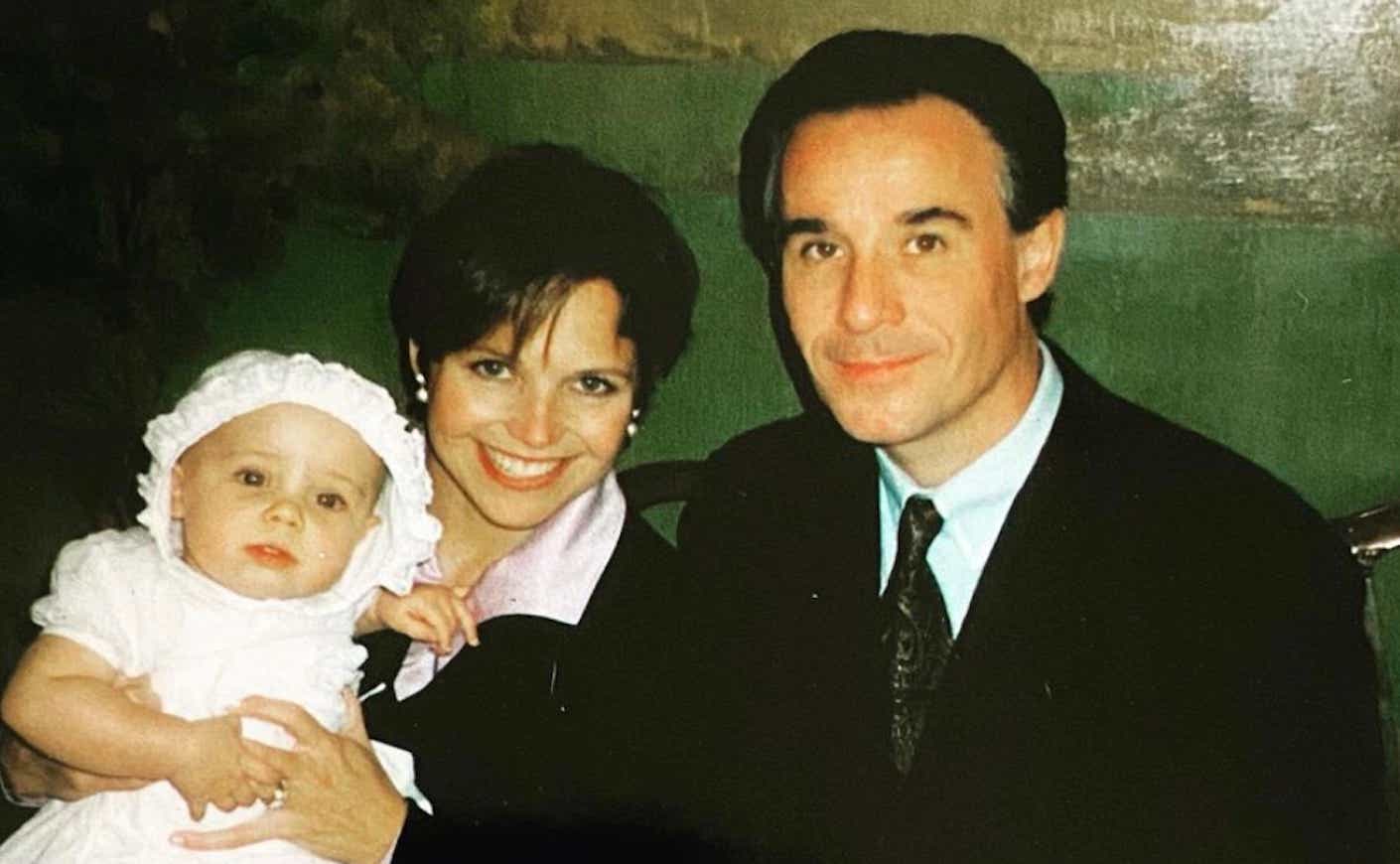As you all probably know by now, I wrote a memoir! It’s called Going There and it came out in October 2021. And the paperback is now available!
In case no one’s told you this before: Writing a memoir is hard. It took two years, days on days on days spent typing away, and endless digging through my past, sometimes literally — I’m a packrat and have boxes upon boxes of mementos in my basement!
Writing a memoir allowed me to revisit some truly amazing periods in my life, like meeting Jay, the births of my daughters, making history on-camera, and meeting and marrying Molner (very alliterative!). But what made the process at times emotionally draining was returning to the losses in my life and reliving all of it to write Going There: the deaths of my parents, who were both my north stars, my sister Emily when her political career was on an upward trajectory, and of course, my first husband Jay.
When it comes down to it, writing about Jay’s diagnosis with cancer and his subsequent death was the hardest part of writing this book. It truly felt like I was reliving the experience, which was the worst time in my life.
In the book, you learn how Jay and I met — and who asked who out first, why I was so smitten with him, what our wedding day was like, and how thrilled he was to be the father of two girls. I’m also frank about some of the struggles we had when, out of nowhere, my career skyrocketed and he sometimes felt understandably diminished by the spotlight that was suddenly on me. You also learn about the day I realized something was terribly wrong. The day our nightmare officially began — the day I learned cancer can happen to a healthy, 41-year-old father of two young girls. And the day a haze fell over me that would linger for the next year, as I went into crisis mode to manage Jay’s treatment — the surgery, the radiation, and even more pain.
To write these chapters, I felt like I was grappling all over again with my husband’s illness as the world looked on, coming to terms with a less-than-happily ever after, saying goodbye to the father of my children, and explaining to our 6-year-old daughter that her daddy had died.
Amid all this, we never really talked directly and honestly about his prognosis, and writing it out forced me to grapple with the way I handled his illness — and the things I might have missed.
It was extremely painful. But it was also an unexpected gift.
In a way, writing about Jay in my memoir made him come alive again. It made me remember why I fell in love with him, made me miss him, and even made me dream about him (a lot). And I think I portrayed him in a way that will help Ellie and Carrie understand what kind of father and man Jay was — and the qualities that he passed down to both of them. The process also allowed me to remember Jay as a young, handsome law associate and as a person — the person I fell in love with, and not the person I lost. The images seared into my memory of him as sick and frail were replaced by memories of him vibrant and healthy.
Conversations about death and dying are almost impossible to have. But finding a way to talk about it is so important, even when you’re healthy. I also wish we had gone to a professional — a social worker or a therapist — who might have helped us navigate this terrifying, uncharted terrain. I hope the chapters I wrote about Jay’s life, as well as his death, will provide some comfort to those who have been there and guidance to those who might find themselves in a similar situation one day.
For more behind-the-scenes stories from Katie’s career, read Going There.









